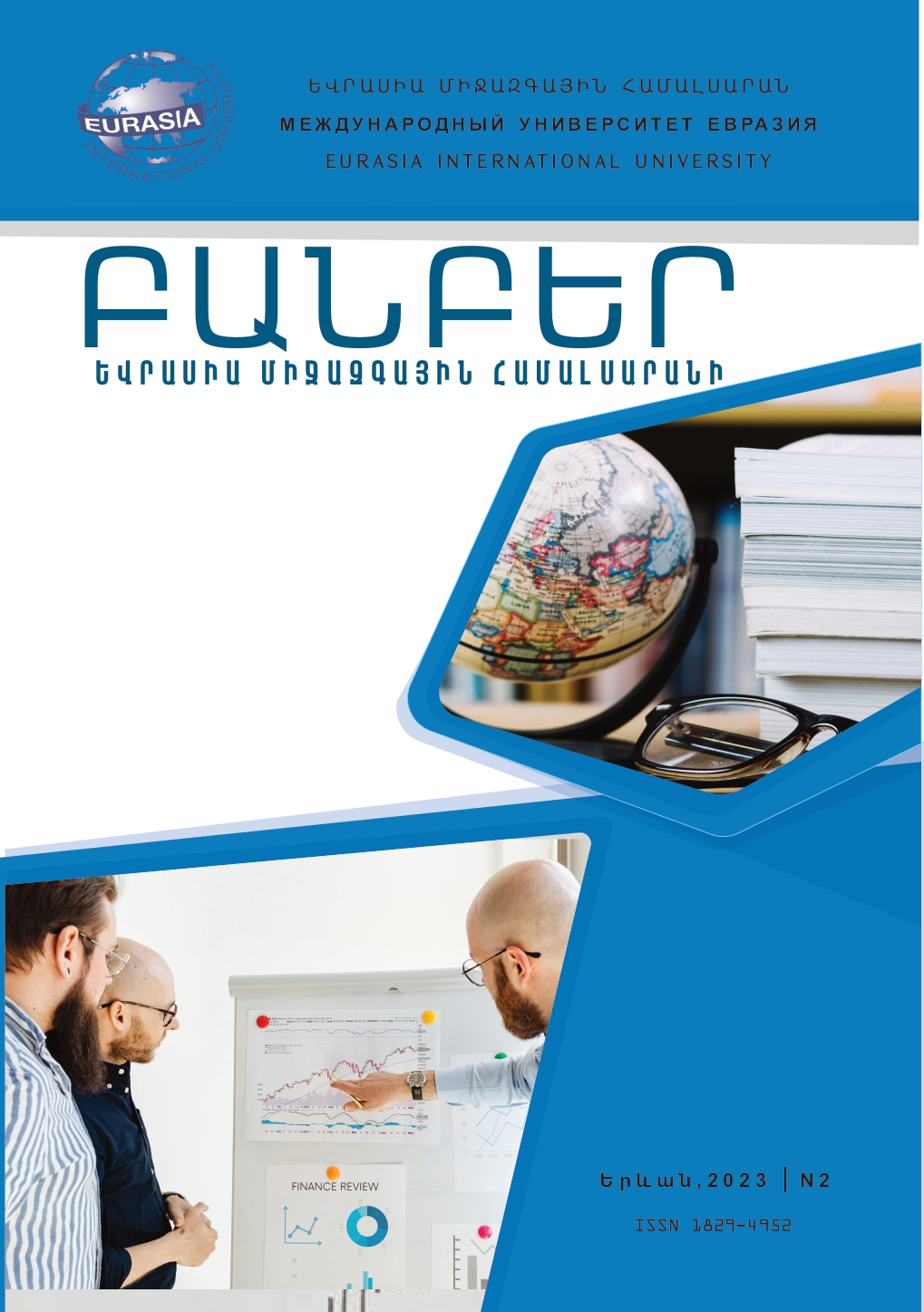ԻՇԽԱՈՒԹՅԱՆ ՏԱՐԱՆՋԱՏՄԱՆ ՍԿԶԲՈՒՆՔԻ ԱՌԱՆՁՆԱՀԱՏԿՈՒԹՅՈՒՆՆԵՐԸ ՊԵՏԱԿԱՆ ԻՇԽԱՆՈՒԹՅԱՆ ԻՐԱՎԱԿԱՆ ՍԱՀՄԱՆԱՓԱԿՄԱՆ ՀԱՄԱՏԵՔՍՏՈՒՄ
DOI-:
https://doi.org/10.53614/18294952-2023.2-34Հիմնաբառեր․-:
իշխանությունների տարանջատում,զսպումների և հակակշիռների համակարգ, վետո, պետական իշխանության սահմանափակում, կառավարություն, նախագահ, խորհրդարան, պատվիրակում, կառավարման խորհրդարանական ձև:Ծանոթագրություն
Սույն հոդվածը անդրադառնում է արդի իրավագիտության կարևորագույն տեսական և գործնական հիմնախնդիրներին՝ իշխանությունների տարանջատման սկզբունքի դրսևորմանը պետական իշխանության իրավական սահմանփակման համատեքստում: Հոդվածում բացահայտվում է արդի իրավաբանական գրականությունում առկա իրավական սահմանափակում հայեցակարգի, իշխանությունների բաժանման սկզբունքի, ինչպես նաև զսպումների և հակակշիռների համակարգի էությունն ու դրսևորման առանձնահատկությունները:
Թեմայի ուսումնասիրության նպատակն է՝ հիմք ընդունելով կատարված հետազոտություն առանձնահատկությունները և ստացված արդյունքները, ներկայացնել իշխանությունների տարանջատման սկզբունքի վերաբերյալ հայտնի իրավագետների, փիլիսոփաների տարաբնույթ մոտեցումները, տվյալ սկզբունքի դրսևորման առանձնահատկությունները նախագահական, կիասանախագահական և խորհրդարանական հանրապետություններում, ինչպես նաև ներյակացնել դրանց վերաբերյալ հեղինակային վերլուծությունները: Առանձնակի ուշադրության են արժանացնել իշխանությունների տարանջատման սկզբունքի համատեքստում օրենսդրական նախաձեռնության իրավունքի պատվիրակման և նախագահի կողմից վետոյի կիրառման հիմնախնդիրները:
Ուսումնասիրության արդյունքները հնարավորություն կընձեռնեն առավել մանրամասն պատկերացում կազմել տարբեր պետություններում և պետական կառավարման ձևերում իշխանությունների տարանջատման սկզբունքի օրենսդրական ամրագման վերաբերյալ, ինչի արդյունքում կկարողանանք կատարելագործել ՀՀ օրեսնդրությունը:




